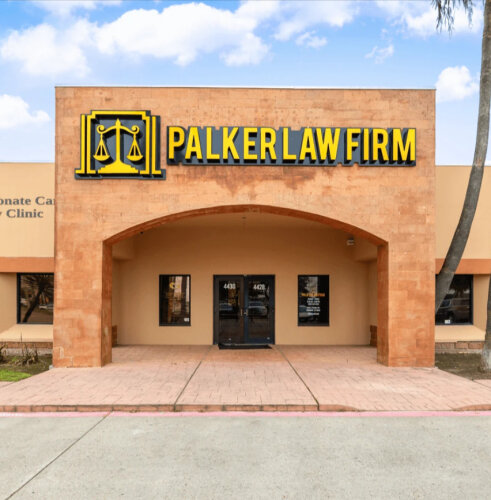Best Premises Liability Lawyers in Edinburg
Share your needs with us, get contacted by law firms.
Free. Takes 2 min.
List of the best lawyers in Edinburg, United States
About Premises Liability Law in Edinburg, United States
Premises liability covers legal claims that arise when someone is injured on another person or entitys property because of a dangerous condition or unsafe practice. In Edinburg, which is in the state of Texas, premises liability cases are handled under general negligence principles. To succeed, a claimant generally must show that a property owner or occupier owed a duty of care, that the owner breached that duty by failing to correct or warn about a hazardous condition, and that the breach caused the injury and resulting damages.
Why You May Need a Lawyer
Premises liability cases can become complex even when the facts seem straightforward. You may need a lawyer if any of the following apply to your situation:
- You suffered significant medical bills, long-term disability, or lost income as a result of your injury.
- Liability is disputed - for example, the property owner denies responsibility, claims you were at fault, or says the danger was open and obvious.
- The property owner is a business, landlord, condominium association, or government entity - each may have special insurance, procedural or notice rules.
- Evidence needs preserving and developing - a lawyer can collect surveillance footage, maintenance records, inspection reports, and witness statements before they disappear.
- You need help valuing your claim, negotiating with insurers, or deciding whether to accept a settlement offer.
- You are considering suing a governmental entity - special notice and filing requirements usually apply and strict deadlines can bar your claim.
Local Laws Overview
Key legal and procedural points that are especially relevant for premises liability in Edinburg and Texas include the following:
- Duty of Care and Visitor Status - Texas courts consider the status of the injured person on the property. Invitees, such as customers or guests invited for business, typically receive the highest duty of care - property owners must inspect for and remedy dangerous conditions. Licensees and trespassers receive lower duties. Special rules apply for children and attractive nuisances - property owners may be liable when a condition is likely to attract children and create an unreasonable risk.
- Negligence Framework - Premises liability claims are generally treated as negligence actions. The claimant must prove duty, breach, causation, and damages.
- Comparative Fault - Texas follows a modified comparative fault system. If the injured person is more than 50 percent responsible for their own injury, they are generally barred from recovery. If they are 50 percent or less at fault, their recovery is reduced in proportion to their percentage of fault.
- Statute of Limitations - For most personal injury and premises liability claims in Texas the statute of limitations is two years from the date of the injury. Missing this deadline usually prevents you from filing a lawsuit.
- Suits Against Governmental Entities - Claims against the city of Edinburg, Hidalgo County, or other governmental bodies have special notice rules and shorter deadlines. In many cases you must provide a written notice of claim within six months and follow statutory procedures before a lawsuit can be filed. Damage caps and restrictions may apply.
- Evidence and Code Violations - Local building, fire, and property maintenance codes can be important. Proof that a property violated a code or failed to follow accepted safety practices can support a negligence claim. Local code enforcement records, inspection reports, and permit histories are often valuable evidence.
- Insurance - Property owners and businesses often have liability insurance. Insurers will investigate and defend claims. Negotiating with insurers requires both factual proof and legal strategy.
Frequently Asked Questions
What qualifies as a premises liability case?
A premises liability case arises when an injury is caused by a dangerous condition on someone elses property and the owner or occupier failed to take reasonable steps to make the property safe or warn visitors. Common scenarios include slip-and-falls, inadequate security that leads to an assault, poorly maintained stairs, falling objects, and dog bites occurring on a property.
How do I know who is responsible for the dangerous condition?
Responsibility can rest with the property owner, manager, landlord, tenant, or a third-party contractor who maintained the area. Determining responsibility requires examining leases, maintenance contracts, incident reports, surveillance footage, and witness statements. A lawyer can help identify the correct parties and gather evidence.
How long do I have to file a premises liability lawsuit in Edinburg?
In Texas, the general deadline to file a personal injury lawsuit is two years from the date of injury. There are exceptions and different deadlines for claims against governmental entities, which often require written notice within a much shorter period, commonly six months. Consult a lawyer promptly to avoid missing critical deadlines.
What if the property owner says the hazard was obvious and I assumed the risk?
Property owners often use the defense that the danger was open and obvious or that the injured person assumed the risk. Texas courts will consider whether the hazard was truly open and obvious and whether the property owner took reasonable steps to warn or make the area safe. Comparative fault principles may also apply, reducing recovery if you share some fault.
Can I sue the city or a government agency if the dangerous condition was on public property?
Yes, but claims against governmental entities have special rules. You usually must give written notice to the government entity within a statutory period and follow specific procedures. Monetary recovery may be limited by caps. Because of these unique requirements, acting quickly and consulting a lawyer is important if the property owner is a government entity.
If I was trespassing when I was injured, can I still recover?
Recovering after trespassing depends on the circumstances. Property owners owe limited duties to trespassers. However, if the property owner intentionally created a dangerous condition, knew of a hidden danger that could cause harm, or engaged in willful conduct that caused injury, liability may still exist. Special rules can apply when children are involved and an attractive nuisance lured them onto the property.
What types of damages can I recover in a premises liability claim?
You may be able to recover economic damages such as medical expenses, lost wages, and rehabilitation costs, and non-economic damages such as pain and suffering and loss of enjoyment of life. In rare cases involving gross negligence or malicious conduct, punitive damages might be available. The exact recoverable damages depend on the facts and applicable law.
Do I have to go to court to get compensation?
Not always. Many premises liability claims are resolved by settlement negotiations with the property owners insurance company. A lawyer can negotiate on your behalf and advise whether a settlement is fair. If negotiations fail, filing a lawsuit and taking the case to trial may be necessary.
How much will it cost to hire a premises liability lawyer?
Many personal injury lawyers handle premises liability cases on a contingency-fee basis. That means the attorney is paid a percentage of the recovery only if there is a successful settlement or verdict. Be sure to ask about fee percentages, costs that might be deducted from a recovery, and any other fees before signing an agreement.
What evidence should I gather after a premises injury?
Preserve and collect evidence as quickly as possible. Important items include photos of the hazard and injuries, witness names and contact information, incident reports, medical records and bills, surveillance footage, repair or maintenance records, and any correspondence with the property owner or insurer. Seek medical attention promptly and keep copies of all medical documentation.
Additional Resources
Below are organizations and local offices that can be helpful when you need information or assistance with a premises liability concern in Edinburg:
- Texas State Bar - for information on finding and vetting licensed attorneys and understanding basic legal rights.
- Texas RioGrande Legal Aid - a regional legal aid organization that may provide low-cost or pro bono assistance for eligible individuals in South Texas.
- Hidalgo County District and County Clerk offices - for filing records, court filing procedures, and local court information.
- City of Edinburg Code Enforcement or Building Inspection Office - for local property maintenance, building code, and permit records that may be relevant to a claim.
- Texas Department of Insurance - for questions about property and liability insurance practices and unfair claim handling.
- Local hospitals and emergency care centers - for urgent medical treatment and documentation of injuries.
Next Steps
If you were injured on someone elses property in Edinburg, consider these steps to protect your rights and position:
- Seek prompt medical care - your health is the top priority and medical records document the injury.
- Preserve evidence - take photographs, keep clothing, and save any damaged property.
- Record details - write down how the incident happened, who was present, time and location, and any statements made by property staff or witnesses.
- Report the incident - notify the property owner, manager, or security and request an incident report. Ask for a copy and keep a record of who you spoke with.
- Collect witness information - names, phone numbers, and brief notes about what each witness saw.
- Do not accept a quick settlement without understanding your medical prognosis and future costs - insurers may try to resolve fast for less than the claim is worth.
- Consult a local premises liability attorney - bring your medical records, photos, incident reports, witness information, and any communications from insurers or the property owner. A lawyer can evaluate your case, explain deadlines, and help preserve critical evidence.
Acting quickly increases your chances of preserving evidence and meeting deadlines. If you are unsure where to start, contact a qualified attorney or one of the organizations listed above for guidance on your next steps.
Lawzana helps you find the best lawyers and law firms in Edinburg through a curated and pre-screened list of qualified legal professionals. Our platform offers rankings and detailed profiles of attorneys and law firms, allowing you to compare based on practice areas, including Premises Liability, experience, and client feedback.
Each profile includes a description of the firm's areas of practice, client reviews, team members and partners, year of establishment, spoken languages, office locations, contact information, social media presence, and any published articles or resources. Most firms on our platform speak English and are experienced in both local and international legal matters.
Get a quote from top-rated law firms in Edinburg, United States — quickly, securely, and without unnecessary hassle.
Disclaimer:
The information provided on this page is for general informational purposes only and does not constitute legal advice. While we strive to ensure the accuracy and relevance of the content, legal information may change over time, and interpretations of the law can vary. You should always consult with a qualified legal professional for advice specific to your situation.
We disclaim all liability for actions taken or not taken based on the content of this page. If you believe any information is incorrect or outdated, please contact us, and we will review and update it where appropriate.










